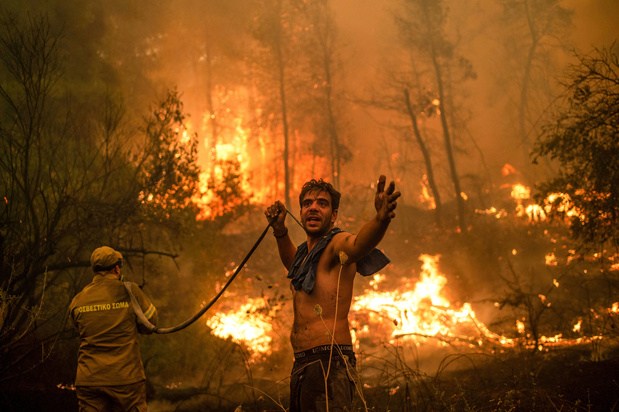Extreme wildfires will become far more frequent by the end of this century posing a major threat to communities and regions that are unprepared, according to the United Nations Environment Programme (UNEP).
The wildfires that have caused damage in recent years in Australia, California and much of Europe (among other regions) will occur evermore often as a result of climate change, according to a study conducted by UNEP together with the Norwegian research centre GRID-Arendal. Even the Arctic, previously all but immune, faces rising wildfire risk.
Even if we manage to limit global warming to 2°C, catastrophic fires are predicted to increase by 9-14% by 2030. By 2050, this is expected to rise to 20-33% and by as much as 52% by 2100 — resulting in longer and more regular heatwaves and extreme drought.
UNEP's Executive Director, Inger Andersen, warned that governments are not making enough effort to reduce the risk of extreme fires. "The governments' response is to invest money in the wrong place," she said in the report, referring to the fact that most government budgets are spent primarily on fire fighting.
Shift in investments
The organisation called on governments to radically change their spending on wildfires, shifting their investments from reaction and response to prevention and preparedness, saying two-thirds of their spending should be allocated to these aspects, with one-third left for their response tactics.
The allocation of budgets to recovery is also pivotal in this battle against wildfires, as the occurrence of such natural disasters further exacerbates climate change. Restoration is an important avenue to mitigate the risk of wildfires before they occur and to build back better in their aftermath, according to the UN organisation.
Related News
- High-temperature record of 38°C linked to climate change confirmed for Arctic
- Flanders to give landowners up to €25,000 to create more woods
UNEP also stressed the importance of data collection based on indigenous knowledge and a stronger regional and international cooperation to improve preventive action.
“We have to minimise the risk of extreme wildfires by being better prepared: invest more in fire risk reduction, work with local communities, and strengthen global commitment to fight climate change," Andersen concluded.

